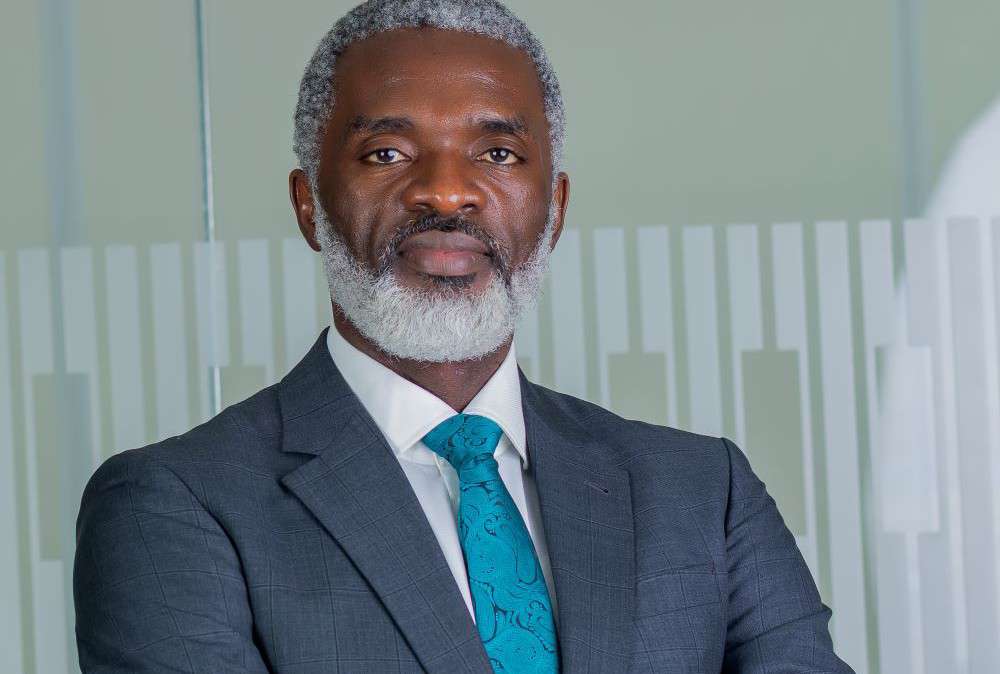Economy
PwC Africa Energy examines continent’s place in global race to net zero by 2050

OBINNA EZUGWU
PWC in this report examines the place of Africa in the global race to end carbon emissions by 2050.
With an acceleration of the global net-zero journey, there is increasing focus on developing countries and their lack of affordability to meet such net zero targets. A clear contrast is evident when considering Africa; as home to 17% of the global population, producing less than 5% of global annual emissions and accounting for only 3% of global cumulative emissions.
Notwithstanding, the majority of Africa’s 54 countries (35) have made commitments towards net-zero emissions, but at an estimated cost of $2.8 trillion just to transition Africa’s current energy base by 2050, the required investment levels are largely unaffordable to most countries. This clear message has been given at COP-26 in Glasgow, through calls for increased international financial support from developed nations.
These are some of the key highlights from PwC’s Africa Energy Review 2021 released today.
With this background we assess Africa’s Energy landscape, what are the trends and patterns across fossil fuels and renewables. This review outlines a double challenge for Africa of energy transition as well as addressing energy poverty, in line with Sustainable Development Goals. What scenarios could play out in Africa’s energy transition and what is the risk of Africa being isolated from global markets and increasingly becoming “stranded”.
Pedro Omontuemhen PwC Africa Oil and Gas Industry Leader, says: “The energy sector in Africa is diverse and characterised by different demands and needs in each country. While the energy journey for each country may be different, an overall perspective is needed on common issues in the bid to reduce the energy deficit on the continent. While the importance of global decarbonisation and a sustainable planet is foremost, the journey to achieve net zero is clearly highlighting the risk of further entrenching economic winners and losers.
Africa: Energy snapshot
A snapshot of Africa’s fossil fuel inventories shows a downturn in production, consumption, and exports between 2019 – 2020. This is largely due to the impact of the COVID-19 pandemic on large projects being delayed or cancelled, as well as global investment pressure resulting in the rapid exit of and disinvestment in portfolios.
Oil production significantly decreased by 19% to 6.8 mmbbl/d from the prior year. This accounts for 7.8% of global production. Consumption saw a decrease of 14% to 3.5 mmbbl/d from the prior year. Exports saw a drop to 5.7 mmbbl/d. Gas production experienced a slight decline of 5%, which amounted to 231 bcm, compared to the previous year. Gas consumption saw a slight decline of 1.5% relative to the previous year, amounting to 153bcm. Gas exports saw a decline of 6% to 26.1 bcm compared to the previous year.
Despite companies commencing exploration and development projects, planned capital expenditure in 2020–2021 fell from $90bn pre-COVID-19 to $60bn.
Renewable energy snapshot
Africa’s renewable energy sector in contrast shows an uptake in generation, capacity, and forecasts. Renewable energy is on the rise across the continent with an annual growth rate of 21% between 2010 and 2020 and current total renewable capacity of more than 58 GW (of which hydropower contributes 63%).
Wind energy generation increased by 14% and solar energy generation increased by 13%, while total renewable energy generation increased by 11% in 2020 compared to the previous year. Solar capacity increased by 13%, wind capacity increased by 11% and hydropower increased by more than 25% in 2020 compared to 2019. Most African countries are also increasing investment in solar and hydropower technologies with projects currently under construction estimated to add 33 GW of renewable energy capacity.
Total installed renewable energy capacity in Africa has grown by over 24 GW since 2013.
The continent’s capacity is expected to increase again by the end of 2021 with growth led by solar and wind projects in Egypt, Algeria, Tunisia, Morocco, and Ethiopia. Forecasts to 2050 estimate 27.32 EJ of additional renewable generation is needed within Africa’s energy mix to compensate for declining fossil fuels, a significant increase from current renewable generation of just 1.79 EJ.
The challenges of a net-zero transition in Africa
To achieve net zero by 2050, Africa would need to invest an estimated $2.8tn in a clean energy mix and reduce its current annual CO2 emissions of 1.62m kilotons of CO2e.
Investment in low-carbon energy systems in Africa lags global pace, but despite global climate finance commitments from developed economies aimed at $100bn per annum, the allocation to Africa falls significantly short of what the continent requires to meet global targets. The fiscal constraints being experienced across Africa create a challenge for the continent to move with pace on its net-zero journey. Private partnerships, public-private partnerships (PPPs) and blended finance are becoming increasingly important and will need to be deployed together with strong public sector governance and innovative financing instruments to overcome these challenges.
James Mackay, PwC Director: Energy Strategy and Infrastructure, says: “Ensuring a sustainable planet is not a cost-benefit assessment, that said: Africa must carefully consider the economic impact of a transition away from fossil fuels and associated revenues in context of the affordable pace of development and growth of the renewable energy sector. More than a third of African nations are very dependent on fossil fuel commodities for state revenue, foreign currency reserves and local economic activity. An unfunded and rapid shutdown of this sector would place significant fiscal strain and hardship on Africa. On the other hand, too slow a transition may see Africa lag global markets and emissions reductions targets. Developed economies must play an active role in Africa to ensure a global win-win outcome”
Economic benefits and opportunity costs of the energy transition Africa’s proven fossil fuel reserves are estimated at more than $15.2tn based on current market value. In sub-Saharan Africa (SSA) alone, nearly 50% of export value is derived from fossil fuels with an estimated annual contribution to GDP from Africa’s current oil, coal, and gas production of approximately $156.2bn. The global energy transition is, however, putting this crucial income source for the continent at risk.
To achieve the 1.5°C global warming target under the Paris Agreement, studies suggest that a third of current oil reserves, half the current natural gas reserves and nearly 90% of current coal reserves must remain in the ground. Applying this to Africa would leave a potential $6.7tn of fossil fuels stranded on the continent.
The adoption of renewable energy has the potential to boost employment opportunities on the continent with the creation of new skills and skills capacity. This employment creation is not limited to direct employment and of relevance to Africa is the potential boost in nonenergy jobs through broader economic activity in rural communities where improved energy access through mini-grids and off-grid solutions will impact economic productivity.
Overall, the energy transition in Africa has the potential to result in total renewable energy employment of around 5m jobs by 2030, which is a substantial increase from the estimate of 324,000 currently employed.
Future structure of the energy sector in Africa
Africa’s coal and oil energy production are expected to drop by around 96% and 71% respectively by 2050. This will be driven by declining demand for fossil fuels globally with leading international oil and gas companies already refocusing their portfolios to include higher renewables exposure. Renewable energy is expected to see large gains in Africa over the next three decades. By 2050, energy production from solar and wind is expected to increase by as much as 110 times and 40 times respectively. Employment levels in the energy sector will depend greatly on the way the energy transition takes place. If Africa is pressured into rapidly transitioning to renewables and is assisted in this process through renewable energy funding, the transition of workers away from fossil fuel related jobs will be much faster. The potential loss of jobs, however, can be mitigated. It is forecast that jobs can be created rapidly in the renewable energy sector and this suggests that there is the potential for an overall gain in employment from a renewable energy transition.
Driving a measured transition: four potential scenarios
PwC has defined four potential scenarios that could materialise as Africa progresses the energy transition: (i) Assisted but rushed; (ii) Collaborative and measured: (iii) Business as usual; and (iv) Stranded and strangled.
All these scenarios are dependent on several factors including: the speed of global net zero adoption; foreign funding available to Africa; and the level of Africa’s economic growth, which will include fossil fuel export revenue.
James Mackay comments: “There is no doubt that the energy transition in Africa will be a complex journey with no single blueprint to solving Africa’s challenges. “Game Theory” outlines scenarios for decision making under uncertainty and how the outcome of individual participants depends on the actions of all. The global energy transition must prioritise the planet and all nations rather than identifying winners and losers.
“Africa will have no choice but to adapt to this new world, but to avoid a growing fault line’ between the developed and the developing world, greater focus on equitable policy, markets and investment is clearly required.”
Pedro Omontuemhen concludes: “Global climate change discussions at the COP26 conference promise to significantly raise these pressures and discussions with the hope that a combination of stronger foreign financial support, equitable policy and market allocations as well as firm commitment and planning from Africa will result in a favourable platform to support a sustainable Africa energy transition.”









